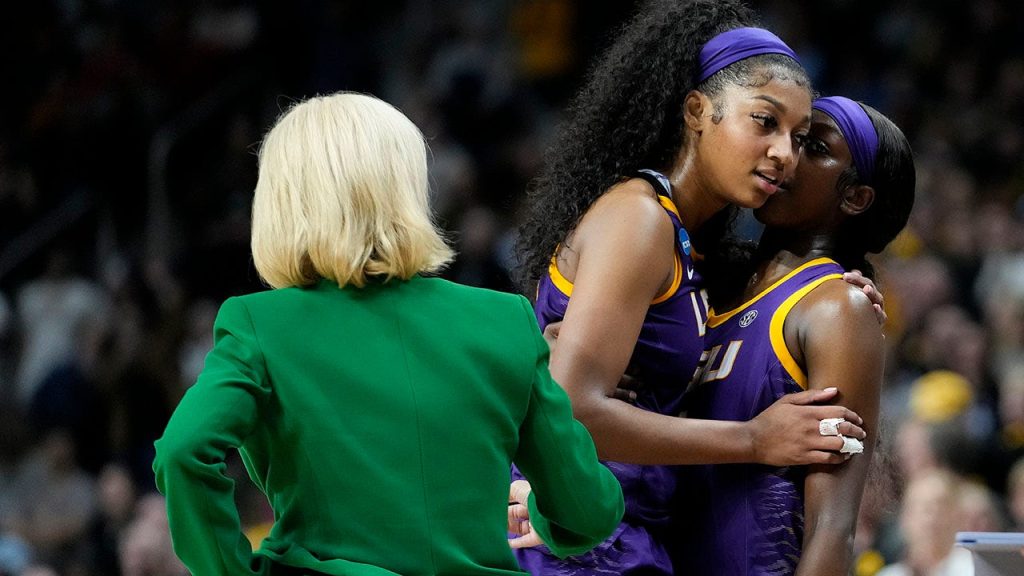Ben Bolch, a writer for the Los Angeles Times, issued an apology for a column he wrote previewing the LSU women’s basketball team’s Sweet 16 matchup against UCLA. LSU head coach Kim Mulkey criticized the piece, calling it “sexist,” “awful,” and “wrong,” as Bolch described the players as “villains” and “dirty debutantes.” Mulkey expressed her displeasure with the column during a press conference, pointing out the offensive language used in the piece and defending her players.
Mulkey’s criticism of the column came after similar remarks she made about The Washington Post. Bolch took it upon himself to apologize to both programs in a written statement released by the LA Times. He admitted that he failed to choose his words carefully, using inappropriate metaphors and offensive language. Bolch acknowledged the impact of his words and expressed regret for the hurt he caused. He specifically apologized to the LSU and UCLA basketball teams, recognizing that his writing did not align with the values of inclusivity and diversity championed by UCLA.
The LA Times updated Bolch’s column with an editor’s note stating that the language used in the original version was inappropriate and offensive, and did not meet the publication’s editorial standards. The note apologized to the LSU basketball program and readers for the offensive content. Bolch’s apology and the editor’s note were issued after Mulkey’s public criticism of the column, highlighting the importance of responsible journalism and the impact of words on individuals and communities. The incident serves as a reminder of the need for sensitivity and awareness in media coverage, especially when discussing issues related to gender, race, and diversity.
Moving forward, Bolch pledged to do better in his writing and to uphold higher standards of journalism. He expressed a commitment to being more mindful of the impact of his words and to avoid language that could be perceived as offensive or hurtful. The apology and the subsequent editing of the column demonstrate a willingness to acknowledge and rectify mistakes, as well as a commitment to learning and growth. The incident serves as a learning opportunity for both the writer and the publication, emphasizing the importance of respectful and responsible reporting in all aspects of journalism.


